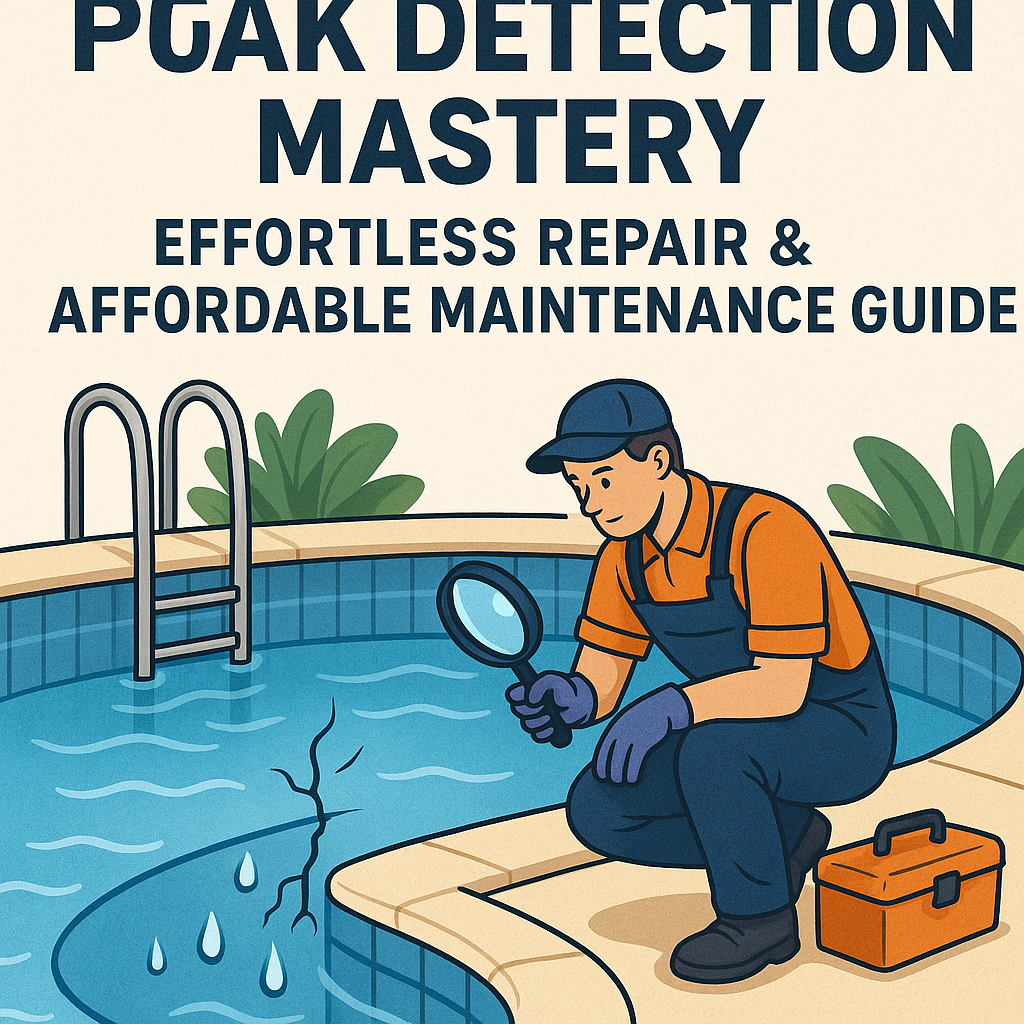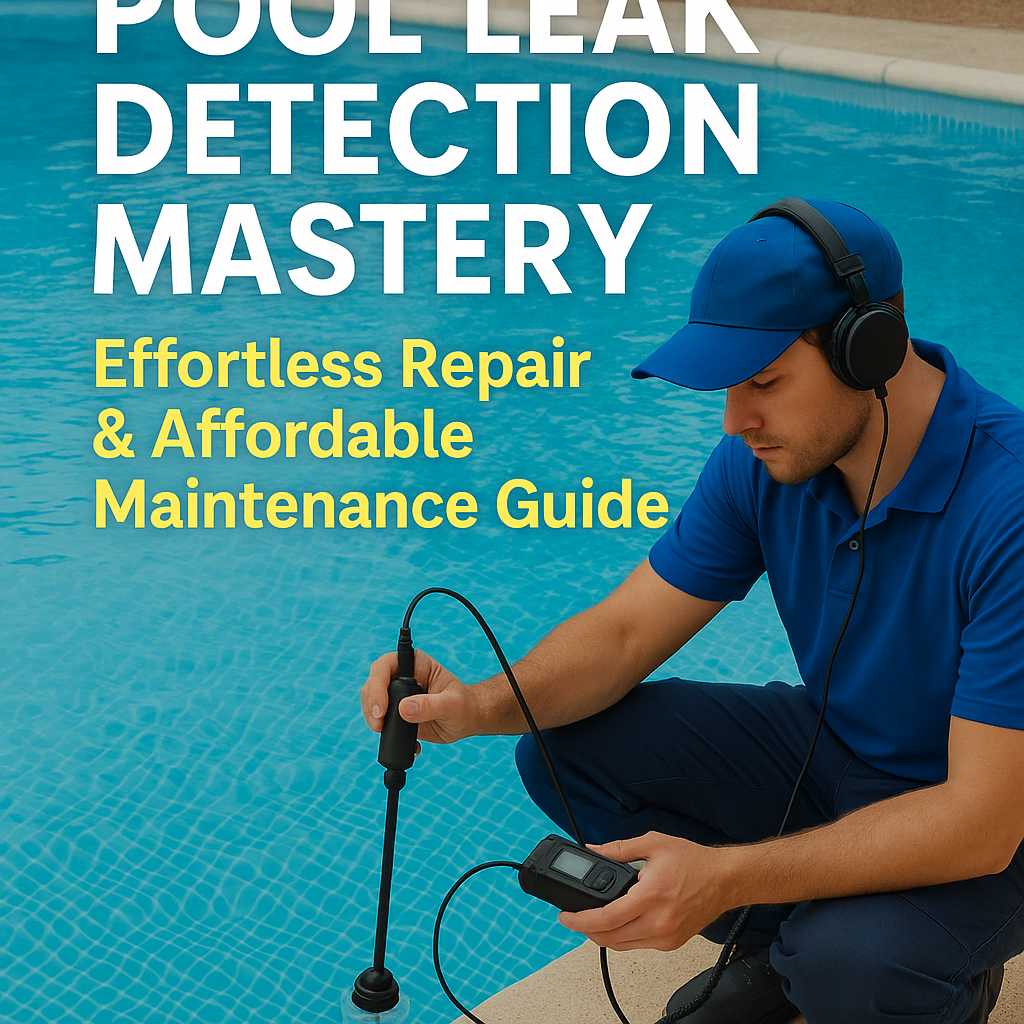Pool leak detection is a fundamental skill for preserving the longevity and functionality of your home pool. As every pool owner understands, a well-maintained pool is less costly, visually appealing, and safer for everyone to use. This article aims to be your ultimate, effortless guide to mastering pool leak detection, pool leak repair, and affordable pool maintenance.
Let’s dive deeply into the fascinating world of pool leak detection and understand why it’s vital for your home’s safety, and your wallet.
##Understanding the Importance of Pool Leak Detection
Pool leak detection is often underestimated by pool owners. A small leak might not seem like a significant issue to many, but over time, it may cause serious damage to both the structure of your pool and possibly your property. Unaddressed water leaks can lead to soil erosion, which could weaken the pool walls and the foundation of nearby structures. Not only does it damage your property, but it also results in substantial water loss, escalating your utility bills.
Pool leak detection should be a regular activity for every pool owner, as it can save a lot of time, money, and unnecessary stress in the long run. Early detection can prevent minor issues from becoming major, costly repairs.
##Effortless Techniques for Pool Leak Detection
Detecting a leak in your pool doesn’t have to be a daunting task. Here are some straightforward techniques you can utilise to identify any potential leaks:
1. The Bucket Test: This simple test involves filling a bucket of water and marking the water level on the inner side. Then, place the bucket in the pool and mark the water level on the outer side. Leave it for 24-48 hours. If the pool water decreases more than the water in the bucket, you possibly have a leak.
2. Inspect: Regularly walk around your pool checking for wet spots in the surrounding area. Soft, damp ground or grass that’s greener around the pool area may indicate a leak.
3. Check The Pool Equipment: A visual inspection of the pump system, pipe valves, and joinery might reveal leakage.
4. Professional Leak Detection Services: If you suspect a leak but can’t locate it, professional pool leak detection services are available. Using advanced methods like pressure testing and geo-phones, these experts can pinpoint even the smallest leak.
##Taking Control: Pool Leak Repair
Once you’ve identified the leak, immediate pool leak repair should be your next step. Minor leaks on the pool liner or small cracks can be repaired using patches or sealants available in pool supply stores. However, bigger problems like pipe leaks, structural issues, or complex filtration system leaks are better left in the hands of professionals.
##Affordable Pool Maintenance Tips
Maintaining your pool to prevent leaks isn’t as expensive or demanding as it appears. Here are some affordable pool maintenance tips:
1. Regular Cleaning: Making sure your pool is clean not only makes it more pleasant to use but also helps prevent potential leaks. Debris can clog filters, leading to increased pressure which can cause cracks or damages to the pool’s structure.
2. Regularly Check Water Chemistry: Imbalanced pool water can lead to corrosion or scaling, which can eventually result in leaks. Make sure you routinely check your pool’s pH levels, alkalinity and calcium hardness.
3. Inspect Pool Equipment: Regular equipment checks can help in early detection of leaks and stop them from escalating.
4. Invest in a Good Pool Cover: A high-quality pool cover can provide protection against debris, reduce evaporation, and minimise the risk of leak-causing damage.
In conclusion, pool leak detection, pool leak repair, and affordable pool maintenance are intertwined skills that every pool owner should master. Regularly implementing these best practices can save you significant time and money, and ensure your pool remains a safe and enjoyable space for you and your loved ones. Whether it’s approaching leak detection as an attractive challenge instead of a tedious task, or viewing maintenance as an investment instead of an expense, a change in perspective, and a bit of proactive work can go a long way in prolonging the life of your pool.



